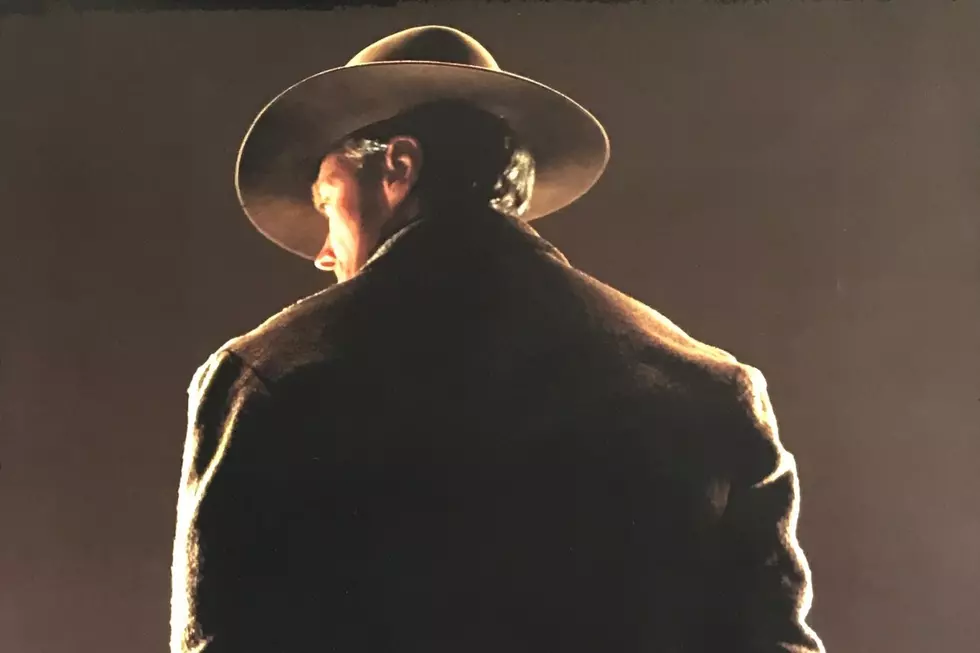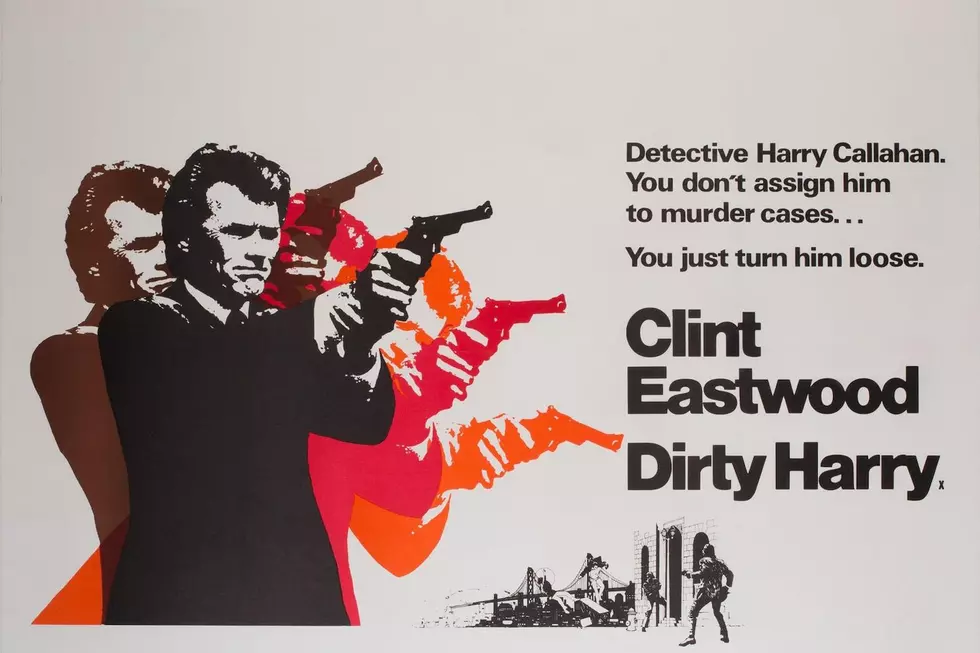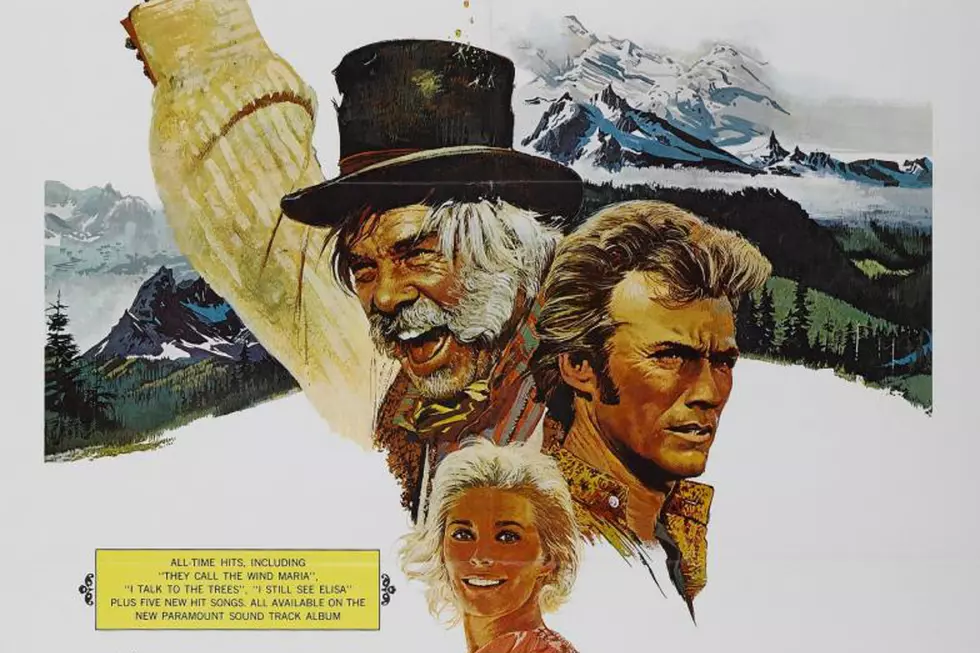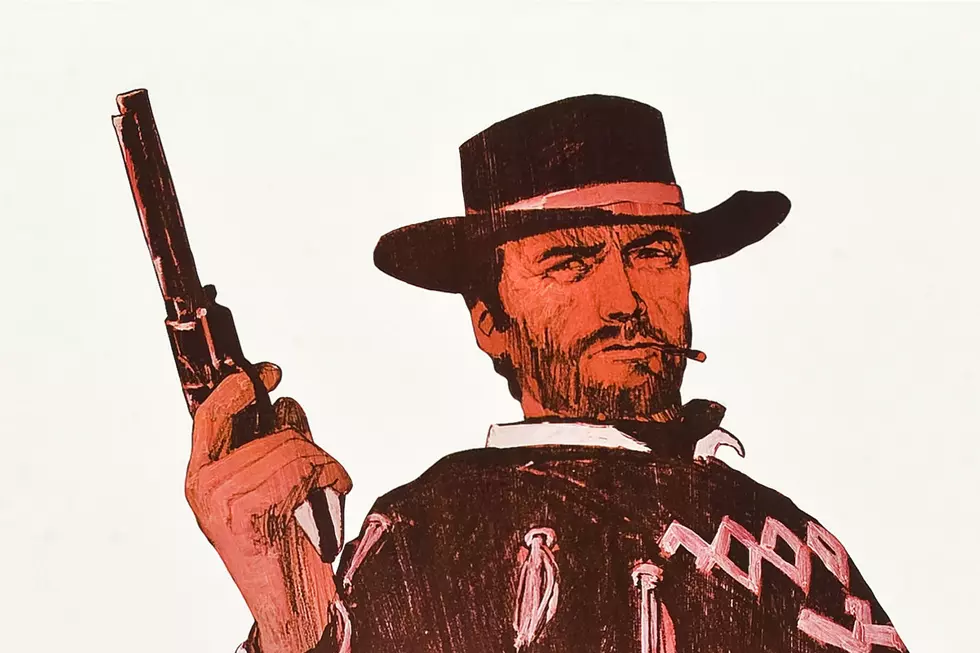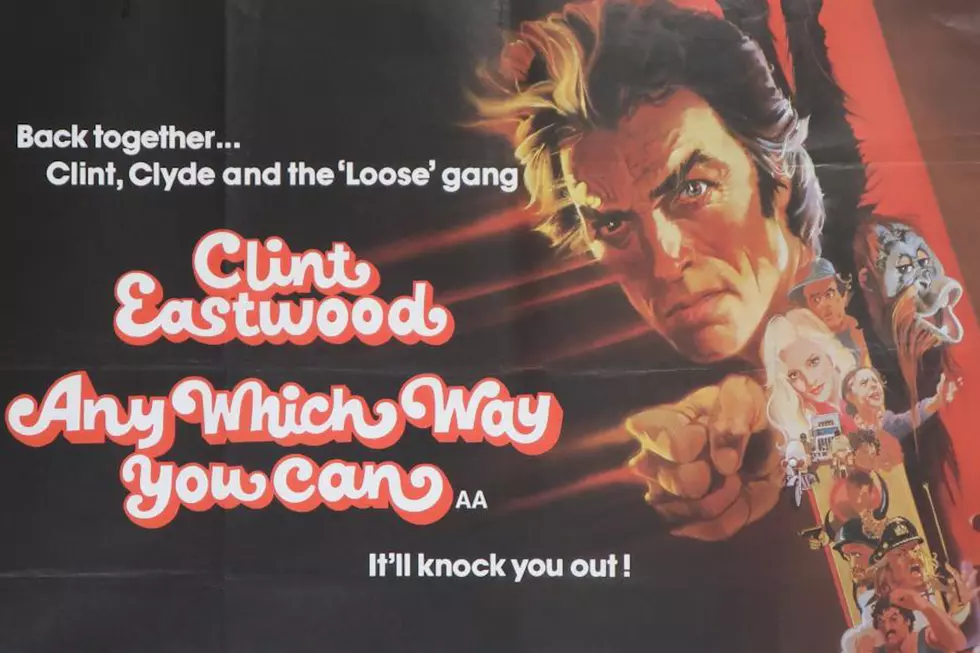
40 Years Ago: Clint Eastwood Makes a Second Orangutan Road Comedy
It's no surprise that in 1980 Clint Eastwood decided to make a sequel to his wildly popular 1978 comedy Every Which Way but Loose. What's surprising is how well the sequel Any Which Way You Can holds up four decades after its release.
Is it a great movie? No. But it manages to have fun, move quickly and never take itself too seriously, which is a plus in any comedy and particularly one that revolves around an orangutan.
Eastwood reprises his role as Philo Beddoe, one of the more interesting characters in the action-comedy genre: He's a champion bare-knuckle fighter who loves pain but isn't all that interested in winning, works as a mechanic and lives with his mom Zenobia (Ruth Gordon) and brother Orville (Geoffrey Lewis), and has as a best friend in the aforementioned orangutan, named Clyde.
The character was originally dreamed up by screenwriter Jeremy Joe Kronsberg, and the legend goes that Eastwood came across the original Every Which Way but Loose script because Kronsberg thought he might pass it along to Burt Reynolds. Eastwood, on taking a look, decided that he wanted to do it himself.
Watch the Trailer for 'Any Which Way You Can'
The movie was a huge hit, and two years later Any Which Way You Can hit theaters, becoming the No. 1 film at the U.S. box office and setting a then-record for Warner Bros. by earning almost $4 million on a single Saturday. In doing so, it cemented Eastwood as an actor with more comedic range than he'd been given credit for and also became the greatest human-animal comedy team-up sequel in movie history (an easy call, given the fact that the competition is largely comprised of things like Dr. Doolittle 2 and Air Bud: Golden Retriever).
The action in Any Which Way You Can begins with Philo taking on a cop in a bare-knuckle fight and beating him easily, while Clyde leaves a stinky present in the seat of the cop's cruiser. (The movie establishes its tone immediately.)
Far from making Philo continue to want to fight, though, the victory convinces him that it's time to retire. Although he never loses, he's realized that he's started to enjoy the pain of being hit a bit too much. It's a strange, interesting detail in a script that is continuously a half-step more intelligent than we expect it to be.
Watch the Opening Fight Scene From 'Any Which Way You Can'
The problem for Philo is that some mafia types on the east coast have gotten wind of him. They love to gamble on fights and no one will fight their bare-knuckle champion Jack Wilson (played by William Smith, a monumental icon of '70s low-budget filmmaking who appeared in more than 300 movies and TV shows) because he killed the last two men he fought.
So the mafiosos first offer Philo a princely sum to fight Wilson – which he can't refuse, as it will buy a new tow truck for his brother Orville and a new roof for their mother's house – and then when he does end up getting cold feet, they kidnap his on-again off-again girlfriend Lynn Halsey-Taylor (Sondra Locke) to force him to do it.
And Philo has other problems as well. Lynn isn't even sure their relationship can even work, and a motorcycle gang called the Black Widows is after him because he destroyed their bikes in the first film. On top of this, Wilson seeks him out to scout his fighting moves in advance, and the two men form a rough-hewn friendship based on mutual admiration. So, when they get to Jackson Hole, Wyo., where the event is to be held, instead of going through with the fight, the two men and Clyde rescue Lynn from the mafia and the whole thing gets called off.
Watch Philo and Wilson in 'Any Which Way You Can'
Or so it seems. Because beneath their friendship, Philo and Wilson are both curious about who would win if they did clash.
So, as in the end of Rocky III, they stage a fight in private. After a couple of rounds, though, Philo gets hit so hard he flies through the wall of the barn where they're fighting and the news spreads through Jackson Hole that the match is on. Everyone who's come from around the country to gamble on the outcome surrounds them, and the men brawl through the streets of the town, into and out of bars and kitchens, at one point stopping to drink a friendly beer before starting up again. Eventually Philo triumphs, at which point the combatants sit down for another friendly beer.
As in any good comedy, everything turns out peaches in the end. The Black Widows are rich and happy because they've been smart enough to bet on Philo to win, Lynn has rediscovered her love for Philo and their relationship is secure, and the mafia types have lost all their money to other gamblers.
It's all shaggy and goofy, but again and again the movie's charisma shines through. Directed by Buddy Van Horn, Eastwood's longtime stunt double who also directed The Dead Pool and Pink Cadillac for the star, Any Which Way You Can has an easygoing cleverness and is packed full of honky-tonk charm.
It's also a menagerie of strange filmic curiosities. The movie opens, for example, with a long shot of Philo and Orville driving down a California freeway to the gentle country sounds of "Beers to You," a duet crooned by Eastwood and Ray Charles. There's also a sequence in which Fats Domino plays to an adoring crowd at a country bar.
Listen to 'Beers to You' by Clint Eastwood and Ray Charles
Most of the movie's other details, characters and gags are also equally absurd – and lovable. Philo is so tough that when he goes on training jogs he does so in blue jeans and so strong that he beats Wilson one-handed in the final fight after Wilson breaks his arm.
Gordon is at her best as Philo and Orville's sailor-mouthed mother, John Quade does wonders as Cholla, the head of the Black Widows (who wear silly wigs for much of the film after losing all their hair because Philo tricks them into riding through tar) and Clyde gets plenty of laughs by sticking his fist out of the window of the pickup truck to signal a right turn, knocking out whoever happens to be there.
In his long career, Eastwood has directed and acted in a huge variety of movies, most of them centered on his stoic, squinting, tough-guy persona. Things like Any Which Way You Can serve as great reminders that he is capable of taking himself lightly, too, without losing any of his ability to make successful pictures.
The Best Rock Movie From Every Year: 1955-2019
More From Ultimate Classic Rock

